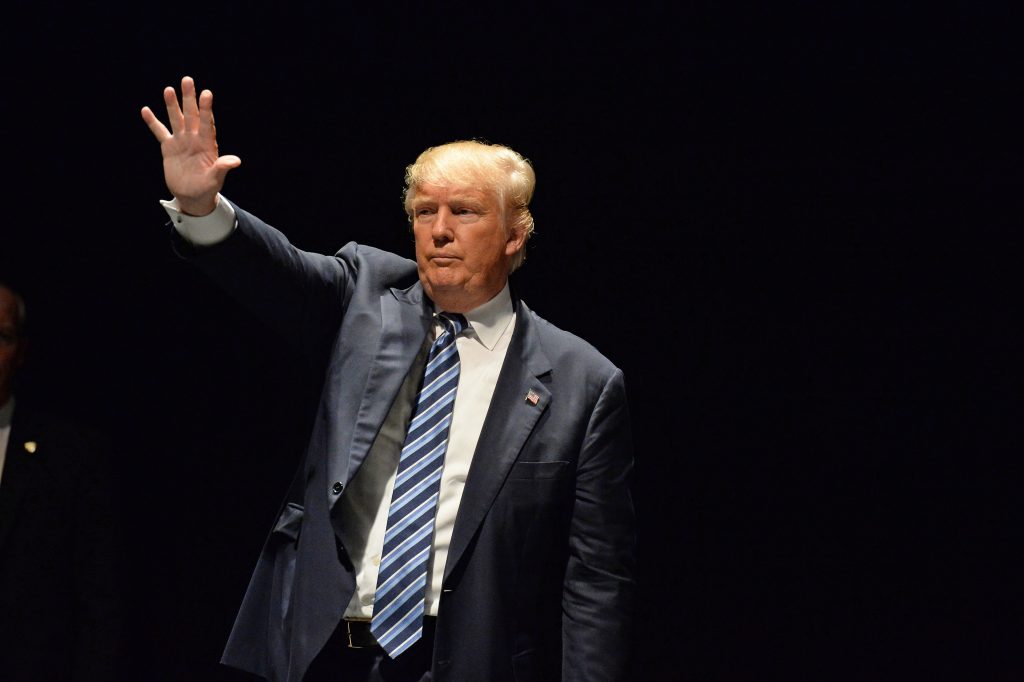Subscriber Benefit
As a subscriber you can listen to articles at work, in the car, or while you work out. Subscribe NowAfter a pugnacious first turn on the witness stand, former president Donald Trump plans to testify again next month in his civil fraud trial, his lawyers said Monday.
He is to return Dec. 11, defense attorney Christopher Kise said.
Trump had plenty to say during his initial testimony Nov. 6 in the case, which has questioned his net worth, accused him of misleading banks and insurers, and threatened his future in business in New York.
The Republican 2024 presidential front-runner denies all the allegations, and he used his first stint on the witness stand to lambaste the case, the judge and New York Attorney General Letitia James, who brought the lawsuit.
“People don’t know how good a company I built. You know why?” Trump complained as one of James’ deputies questioned him. “Because people like you go around and try and demean me and try and hurt me, probably for political reasons.”
He called James “a political hack” and dismissed a pretrial ruling against him as a “fraud on behalf of the court.”
The second round of Trump’s testimony could be still more expansive. James’ office led the questioning the first time; next month, that role goes to Trump’s own lawyers, and they can ask about a wider range of subjects than they could during cross-examination before.
When Trump’s son, company Executive Vice President Donald Trump Jr., testified for the defense this month, for instance, he lauded his father, traced the family’s history in business back to the late 1800s, and talked the court through a glossy slideshow replete with sumptuous photos of skyscraper views, golf fairways, ballrooms, roof terraces and estates.
Eric Trump, who is Trump Jr.’s brother and fellow EVP, is due to testify for the defense Dec. 6, Kise said. Both Trump sons also testified during the attorney general’s part of the case.
Now finishing its second month, the trial is putting a spotlight on the real estate empire that vaulted Trump into public life and eventually politics. He maintains that James, a Democrat, is trying to damage his campaign.
At the heart of the case are Trump’s 2014 to 2021 annual “statements of financial condition,” which were used to help secure loans and other deals.
A Trump Organization executive testified Monday that the company no longer produces such statements.
The company continues to prepare various audits and other financial reports specific to some of its components, but “there is no roll-up financial statement of the company,” said Mark Hawthorn, the chief operating officer of the Trump Organization’s hotel arm.
He wasn’t asked why the comprehensive reports had ceased but said they are “not required by any lender, currently, or any constituency.”
Messages seeking comment on the matter were sent to spokespeople for the Trump Organization.
Hawthorn, a certified public accountant, has worked since 2016 for the company’s Trump Hotels arm. Trump Jr. testified earlier that Hawthorn is functioning as the entire Trump Organization’s chief financial officer, calling him “the finance guy within Trump world now” and saying the CPA “has taken on all those decisional responsibilities.”
But Hawthorn said it was incorrect to say “all.”
Defense lawyer Clifford Robert used Hawthorn’s testimony to try to show that companies under the Trump Organization’s umbrella have produced reams of financial documents “that no one had a problem with.” A lawyer for James’ office, Andrew Amer, stressed that the suit is about Trump’s overall statements of financial condition, calling the other documents irrelevant.
Trump asserts that his wealth was understated, not overblown, on his financial statements. He also notes that the numbers came with disclaimers saying that they weren’t audited and that others might reach different conclusions about his financial position.
Judge Arthur Engoron, who will decide the verdict in the nonjury trial, has already ruled that Trump and other defendants engaged in fraud. The current proceeding is to decide remaining claims of conspiracy, insurance fraud and falsifying business records.
James wants the judge to impose over $300 million in penalties and to ban Trump from doing business in New York — and that’s on top of Engoron’s pretrial order that a receiver take control of some of Trump’s properties. An appeals court has frozen that order for now.
Please enable JavaScript to view this content.

